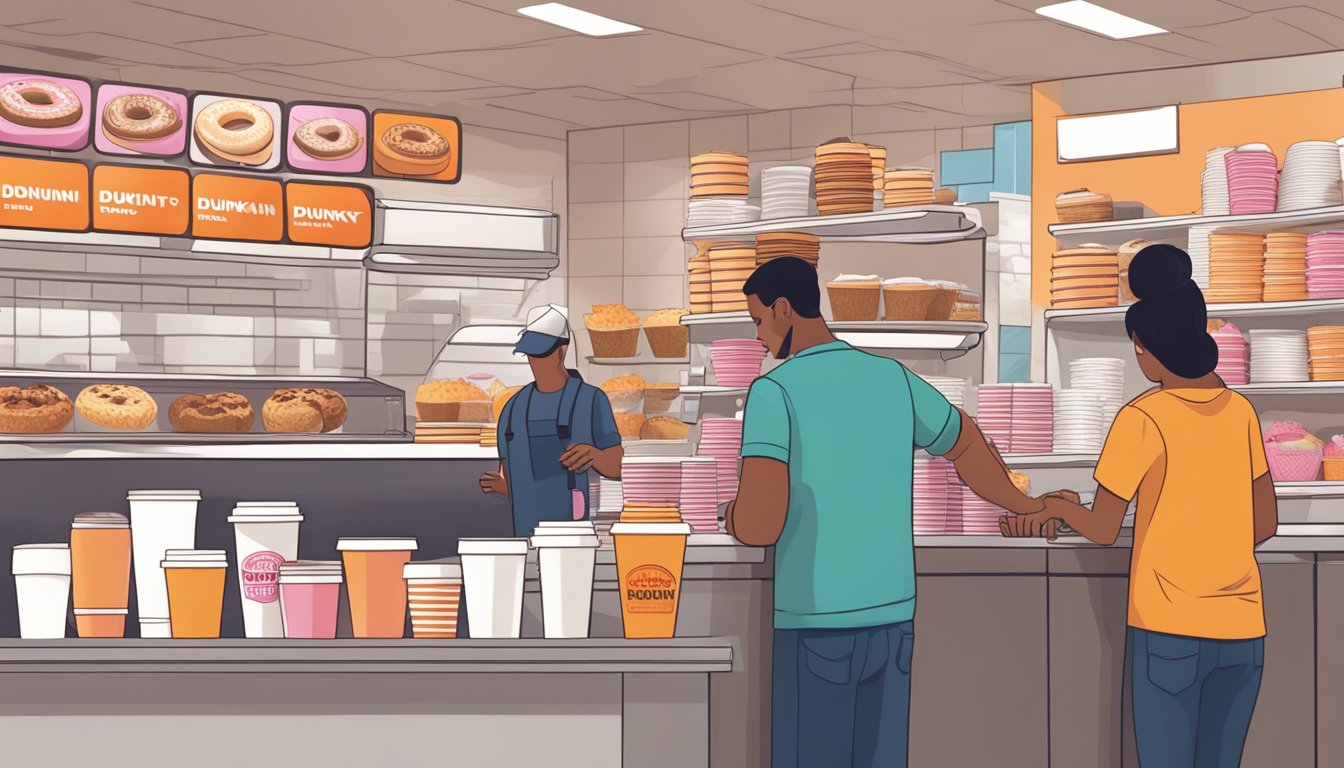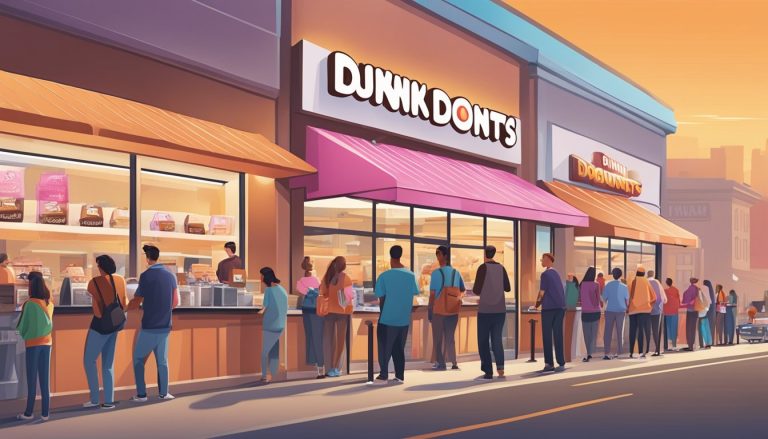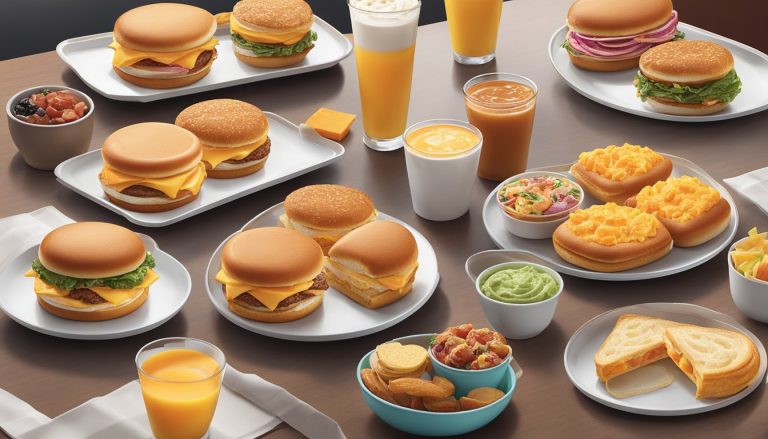Dunkin’ has completed a global transition from polystyrene foam cups to paper cups, marking a significant step towards environmental sustainability. This change, finalized in May 2020, eliminates approximately one billion foam cups from the waste stream annually. The shift to double-walled paper cups across all Dunkin’ restaurants worldwide represents a tangible reduction in the company’s environmental footprint.
The move away from foam cups addresses long-standing concerns about the environmental impact of single-use, non-recyclable materials. Polystyrene foam, notorious for its persistence in landfills and ecosystems, has been a target of environmental campaigns for years. Dunkin’s decision aligns with growing consumer awareness and demand for more eco-friendly packaging options in the food service industry.
This transition is part of a broader sustainability initiative by Dunkin’. The company is also working on implementing recyclable hot coffee cup lids across its locations. These efforts reflect an increasing trend in the food and beverage sector to reduce plastic waste and adopt more environmentally responsible practices.
Background of Dunkin’s Packaging

Dunkin’ has made significant changes to its packaging over the years, driven by environmental concerns and sustainability goals. The company’s shift from polystyrene foam cups to paper alternatives marks a major milestone in its packaging evolution.
Evolution of Dunkin’s Cup Materials
Dunkin’ relied on polystyrene foam cups for decades due to their insulating properties and low cost. These cups became a recognizable part of the brand’s image. In February 2018, Dunkin’ announced plans to eliminate all foam cups from its global supply chain. The transition began in spring 2018, with a target completion date of 2020.
The company replaced foam cups with double-walled paper cups in its U.S. restaurants. This change affected all Dunkin’ locations worldwide, impacting billions of cups annually.
Environmental Concerns with Polystyrene Foam
Polystyrene foam posed significant environmental challenges. It does not biodegrade easily and often ends up in landfills or as litter. The material is difficult to recycle and can harm wildlife if it enters ecosystems.
Dunkin’s shift to paper cups aims to remove approximately one billion foam cups from the waste stream each year. This change aligns with growing consumer demand for more sustainable packaging options.
Paper cups offer improved recyclability compared to foam. While not perfect, they represent a step towards more environmentally friendly practices in the fast-food industry.
Dunkin’s Sustainability Initiatives
Dunkin’ has implemented several key programs to reduce its environmental impact and promote sustainable practices. These efforts focus on eco-friendly restaurant design and responsible sourcing of coffee and packaging materials.
DD Green Achievement Program
The DD Green Achievement program aims to create more energy-efficient Dunkin’ restaurants. This initiative incorporates features like LED lighting and low-flow faucets to reduce energy and water consumption. Dunkin’ set a goal to open its 1,000th DD Green Achievement restaurant by the end of 2025.
The program has shown promising results in decreasing environmental impact. DD Green Achievement restaurants use about 25% less energy compared to standard Dunkin’ locations.
Sourcing and Collaboration with Sustainability Standards
Dunkin’ has committed to sourcing 100% responsibly sourced coffee by 2025 through its Drive-To Sustainability Program. This effort involves partnerships with organizations like the Rainforest Alliance and adhering to the Sustainable Forestry Initiative Standard.
The company also participates in the Sustainable Coffee Challenge, a collaborative effort to make coffee production more sustainable. Dunkin’ is working to improve its packaging sustainability by transitioning to recyclable polypropylene lids and eliminating foam cups from its global supply chain.
These initiatives demonstrate Dunkin’s dedication to reducing its environmental footprint across various aspects of its business operations.
The Transition to Paper Cups
Dunkin’ completed its global transition from polystyrene foam cups to paper cups in 2020, eliminating approximately one billion foam cups from the waste stream annually. This shift represents a significant step in the company’s environmental sustainability efforts.
Design and Benefits of the New Paper Cups
The new double-walled paper cups are designed to maintain beverage temperature while providing a comfortable grip. These cups are certified to the Sustainable Forestry Initiative Standard, ensuring responsible sourcing of materials. The double-wall construction eliminates the need for sleeves, reducing overall material usage.
Dunkin’ also developed new recyclable hot coffee cup lids made of #5 polypropylene. This change, combined with the paper cup transition, removed 19 million pounds of polystyrene from the waste stream yearly.
Impact on Recycling and Waste Management
The switch to paper cups significantly improves Dunkin’s environmental footprint. Paper cups are more readily recyclable in many communities compared to foam cups. They also biodegrade faster if they end up in landfills.
Some areas may accept paper cups for composting, further reducing waste. However, recycling acceptance varies by location due to food contamination concerns. Dunkin’ encourages customers to check local recycling guidelines.
The company’s efforts extend beyond cups. Dunkin’ is exploring additional sustainable packaging solutions to minimize its environmental impact across all product lines.
Operational Changes and Consumer Experience
Dunkin’ implemented significant changes to its operations and customer service model in response to shifting consumer preferences and the COVID-19 pandemic. These adaptations aimed to maintain safety while meeting evolving customer needs.
Adapting to the COVID-19 Pandemic
Dunkin’ swiftly adjusted its service model to prioritize safety during the pandemic. The company expanded carry-out and curbside pick-up options, allowing customers to get their coffee and baked goods with minimal contact. Drive-thru service became a key focus, with many locations optimizing their drive-thru lanes for faster service.
Contactless payment methods were widely implemented across Dunkin’ locations. This reduced physical interactions between staff and customers. Enhanced cleaning protocols were also put in place to ensure a safe environment for both employees and patrons.
Adjustments in Customer Habits and Preferences
The pandemic accelerated changes in consumer behavior that were already underway. Mobile ordering through the Dunkin’ app saw a significant uptick, as customers sought convenient ways to get their favorite hot beverages and snacks.
Dunkin’ noted shifts in peak hours and purchase patterns. With many people working from home, the traditional morning rush changed. The company adapted by adjusting staffing and production schedules to meet new demand patterns.
Menu innovations focused on comfort foods and indulgent treats, responding to changing customer preferences during stressful times. Dunkin’ also expanded its selection of packaged coffee and K-cups for at-home consumption.
Further Innovations in Sustainable Practices
Dunkin’ has expanded its sustainability efforts beyond paper cups, focusing on recyclable packaging and energy efficiency in stores. These initiatives demonstrate the company’s commitment to reducing its environmental footprint across multiple areas of operation.
Development of Recyclable Lids and Packaging
Dunkin’ has made significant strides in creating more sustainable packaging options. The company successfully tested a new hot coffee cup lid made of #5 polypropylene. This material can be recycled in cities and towns that offer #5 recycling facilities.
The introduction of these recyclable lids complements the shift to paper cups, further reducing waste. Dunkin’ aims to implement these lids across all U.S. locations, potentially diverting millions of plastic lids from landfills annually.
In addition to cup lids, Dunkin’ is exploring other sustainable packaging solutions for its food and beverage items. This includes investigating compostable or easily recyclable materials for sandwich wrappers and drink carriers.
Optimizing Energy Use in Dunkin’ Stores
Dunkin’ has turned its attention to improving energy efficiency in its restaurants. The company has set a goal to open its 1,000th DD Green Achievement™ restaurant by the end of 2025.
These energy-efficient stores incorporate various features to reduce environmental impact:
- LED lighting throughout the restaurant
- High-efficiency HVAC systems
- Energy management systems to monitor and optimize power usage
- Water-saving plumbing fixtures
By implementing these measures, Dunkin’ aims to significantly reduce energy consumption and associated greenhouse gas emissions across its store network. The company also encourages franchise owners to adopt these practices in existing locations through retrofit programs.
Challenges and Recommendations

Dunkin’s transition to paper cups presents both obstacles and opportunities. Addressing recycling infrastructure and aligning with global sustainability standards are key focus areas for maximizing environmental benefits.
Overcoming Barriers to Recycling and Composting
Paper cups face recycling challenges due to their plastic lining. Many recycling facilities lack the capability to separate this lining, leading cups to end up in landfills. Dunkin’ can tackle this by:
• Partnering with specialized recycling companies
• Investing in cup collection programs at stores
• Educating customers on proper disposal methods
Composting offers another solution. Dunkin’ could:
• Use fully compostable cups and lids
• Set up in-store composting bins
• Collaborate with local composting facilities
These efforts would divert cups from the waste stream and support circular economy principles.
Aligning with Global Supply Chain Sustainability
Dunkin’ faces challenges in ensuring sustainable practices across its international operations. To address this, the company can:
• Implement uniform sustainability standards for all suppliers
• Conduct regular audits of global partners
• Invest in eco-friendly packaging innovations
Reducing artificial dyes in products and packaging aligns with sustainability goals. Dunkin’ should consider:
• Phasing out synthetic colorants
• Using natural alternatives where possible
• Clearly communicating ingredient changes to customers
By focusing on these areas, Dunkin’ can enhance its environmental impact and strengthen its commitment to global sustainability.




